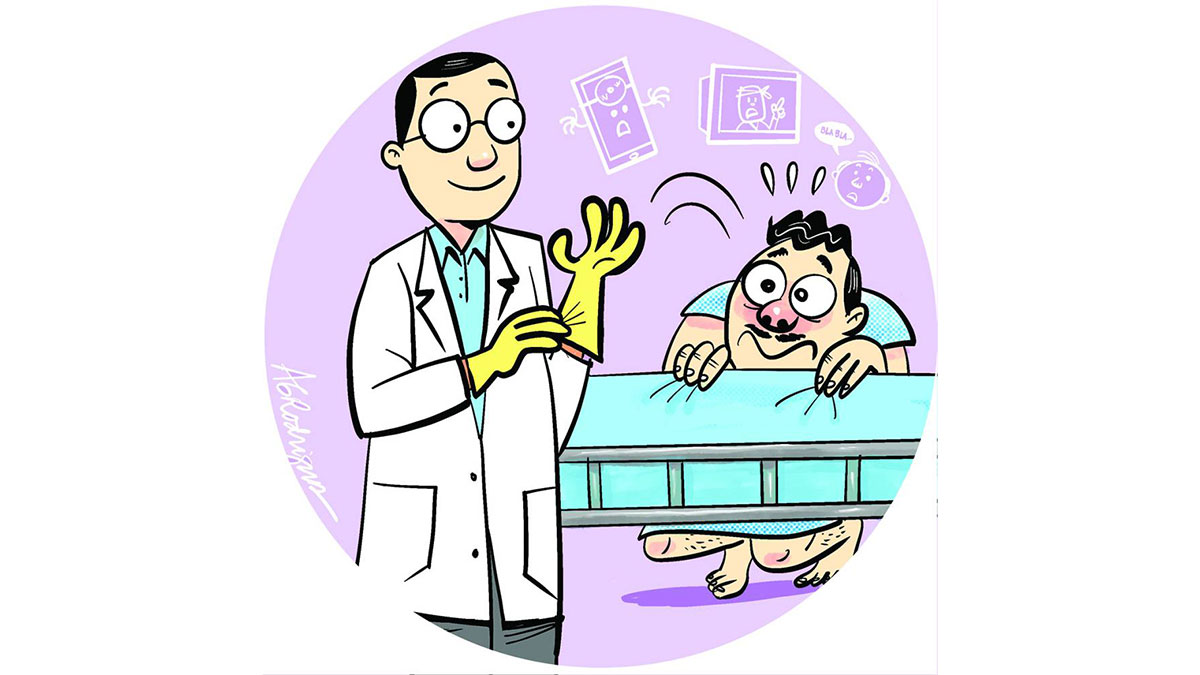Only 5 to 10% of breast cancers are inherited. So, regardless of genes and family history, considering all the other risk factors, everyone can still be at risk of the disease. However, it can be prevented with regular screening and positive lifestyle changes.
Breast cancer risk factors that you should be aware of are as follows:
- being a woman
- old age (50 and above)
- family history
- personal history of breast and/or ovarian cancer
- genetics (genes such as BRCA1 and BRCA2 and others linked to breast cancer)
- early menarche (menstruation before 11)
- late menopause (after 55)
- use of Hormone Replacement Therapy (HRT)
- pregnancy history (first child after 30 or never had a full-term pregnancy)
- breastfeeding history
- use of oral contraceptives
- exposure to radiation and/or chemicals
- being overweight
- lifestyle factors (being sedentary, smoking cigarettes, alcohol drinking, and unhealthy eating)
I am at high risk of breast cancer because my mom had it at the age of 56. I got my first period at the age of 10, I have dense breasts (with some benign solid nodules), and I have never given birth. But I will try my best to continue preventing this disease as long as I have the chance, by regular breast screening, along with health check-ups and of course, healthy living. I’ve been consistent in doing an annual mammogram and a breast ultrasound for the past 10 years.
Before breast cancer awareness month ends, let me share the most effective lifestyle prevention strategies that you can do to prevent breast cancer based on research.
Make movement a part of your daily life
A study published last month in the British Journal of Sports Medicine reveals that increasing overall physical activity and reducing sedentary or sitting time can reduce the chances of developing breast cancer. Analysis of the data showed that a high overall level of genetically predicted physical activity can lower the risk of invasive breast cancer by 41%, irrespective of menopausal status, tumor type, stage, or grade. Compared with a sedentary person, genetically predicted vigorous activity (3 or more days a week) was associated with 38% lower risk of breast cancer. Lastly, a greater level of genetically predicted sitting time was associated with a 104% higher risk of triple-negative breast cancer (more aggressive, grows faster, and harder to treat form of breast cancer).
A study that was conducted among women with a higher risk of the illness shows that 2.7 hours of moderate (walking) exercise or 1.5 hours of vigorous (running) exercise may reduce the probability of breast cancer by about 20%.
Standard recommendations of physical activity for its prevention include 150-300 minutes of moderate activities of 75 to 100 minutes of vigorous activities. Make movement a daily habit so you can progress to moderate activities (50-70 % of your maximum heart rate- MHR) such as dancing, brisk walking, and eventually vigorous activities (70-85% of your MHR like running, boxing, indoor cycling, and high-intensity interval training).
*MHR is 220-age.
Maintain a healthy weight
Post-menopausal women (usually 50 and above) with excess body fat, which increases the amount of estrogen in the body, can be at risk of developing breast cancer. A 2019 study published in the Journal of the Cancer Institute suggests that moderate weight loss between 4.5 to 11 pounds is associated with a lower risk for the ailment (32% decreased risk for 11 pounds and above).
Combine cardio and strength training to lose body fat, not just total body weight.
Limit or avoid alcohol
Alcohol, which is classified as a Group 1 human carcinogen can increase the risk of 7 types of cancer (breast, mouth, throat, voice box, esophagus, liver, and colorectal). According to the World Health Organization (WHO), alcohol reduction can significantly reduce the risk of breast cancer. In fact, 100,000 out of more than 2 million cases of breast cancer were attributable to alcohol consumption. Alcohol can increase the levels of estrogen in the body which has been linked to increased breast cancer occurrence.
A meta-analysis of 53 studies published in the British Journal of Cancer shows that compared with women who are non-drinkers, the relative likelihood of breast cancer is higher by 32% for those who consume 3-4 drinks per day and by 46% with an intake of more than 4 drinks per day. The risk is increased by 7% for every serving of alcohol (10 grams).
Limit alcohol intake to less than 1 serving a day or you might want to consider stopping completely to ensure the reduction of its possibility.
Consume red meat in moderation
Red meat consumption may increase the risk of invasive breast cancer according to a 2020 study published in the International Journal of Cancer. The study suggests that substituting to poultry instead is a far better alternative.
Higher intake of meat (beef pork and lamb) cooked at higher temperatures (frying, pan-frying, boiling, and barbecuing), animal fats, and processed meats (ham, bacon, salami, sausage) has been linked to causes of breast cancer due to the production of cancer-causing substances. Try to cook meats at a lower temperature by steaming, boiling, and stewing.
Limit your consumption of lean red meat to less than three servings a week (1 serving = the size of a deck of cards). Eat other sources of protein such as poultry, seafood, egg, and tofu.
Stay away from ultra-processed foods
Findings of a recent study conducted among young Latin American women aged 20-40 years old suggest that ultra-processed foods such as ready-to-eat foods, cakes and desserts, carbonated and industrial fruit juice beverages, breakfast cereals, sausages and reconstituted meat products (used to make nuggets and ham), industrial bread, dairy products (and derivatives), packaged savory snacks might increase that risk for breast cancer. These products may contain additives and preservatives linked to it.
Practice regular intake of cancer-fighting foods
Healthy eating can improve your gut health which strongly affects your immune system, just like what I discussed in my previous article.
Studies have shown that these foods can lower the risk of breast cancer (and other cancers as well):
- Green leafy vegetables (spinach, kale, bokchoy, arugula)
- Cruciferous vegetables (broccoli, cauliflower, cabbage, brussel sprouts)
- Allium veggies (garlic, onion, leek, chives)
- Seeds and nuts (walnut, flaxseed)
- Spices and herbs (turmeric, thyme, oregano, black pepper, parsley, cinnamon)
- Fatty fish (salmon, sardines, tuna, mackerel)
- Berries (starwberries, blueberries, blackberries, raspberries)
- Fermented foods (kimchi, kombucha, sauerkraut, miso, yogurt, kefir)
- Citrus foods (orange, lemon, lime grapefruit, pomelo)
- Beans (lentils, chickpeas, kidney beans)
- Whole grains (wheat grain products, red rice, black rice, oats, millet, barley, and sorghum)
- Green tea
Aside from choosing wisely what to eat by focusing on cancer-fighting foods and avoiding alcohol, ultra-processed foods, sugar, and saturated fat. You also need to practice portion control to avoid weight gain, since obesity (too much fat accumulation in the body) can lead to cancer.
Email the author at mitchfelipe@gmail.com or follow/message her on Instagram @mitchfelipemendoza













































